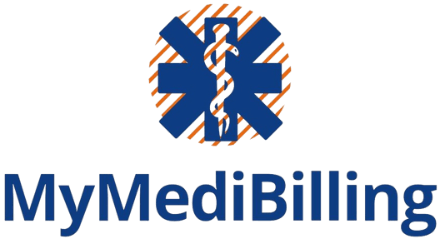Introduction
Medical billing is a vital component of the healthcare industry, encompassing submitting and following up on claims with health insurance companies to secure payment for healthcare services rendered. However, medical billing professionals encounter several common challenges daily. One of the most pervasive issues is coding errors and rejections, which occur when mistakes are made in coding medical procedures and diagnoses, resulting in claim rejections by insurance companies.
To mitigate this challenge, medical billing audit professionals can implement regular staff training and education programs to ensure accurate coding practices. Furthermore, leveraging advanced software and technology can help identify and correct coding errors before claim submission, thereby reducing the likelihood of rejections. Another significant challenge in medical billing is insurance denials and appeals.
Insurance companies frequently deny claims due to reasons such as lack of medical necessity or incomplete documentation, leading to delayed or lost revenue for healthcare providers. To overcome this challenge, medical billing professionals can develop a comprehensive understanding of insurance policies and guidelines, as well as establish effective appeals processes to challenge denials. By maintaining open communication with insurance companies and providing comprehensive documentation to support claims, medical billing services professionals can increase the likelihood of successful appeals and ultimately receive payment for services.
Key Takeaways
- Coding errors and rejections are common challenges in medical billing, but can be minimized through thorough training and regular audits.
- Insurance denials and appeals can be frustrating, but having a dedicated team to handle these issues can improve the success rate of appeals and reduce the impact on revenue.
- Patient payment collection can be improved through clear communication of financial responsibilities and offering flexible payment options.
- Compliance with regulations and policies is crucial to avoid penalties and maintain a good reputation, so staying updated and implementing regular training is essential.
- Staff training and turnover can be managed by creating a positive work environment, offering opportunities for growth, and providing ongoing support and education.
Insurance Denials and Appeals
Insurance denials and appeals are a common challenge in medical billing that can have a significant impact on the financial health of healthcare providers. When claims are denied by insurance companies, it can result in delayed or lost revenue, as well as an increased administrative burden for medical billing professionals. To address this challenge, medical billing professionals need to have a thorough understanding of insurance policies and guidelines.
By staying informed about the latest updates and changes in insurance regulations, medical billing professionals can proactively identify potential issues and take necessary steps to prevent denials. In addition to understanding insurance policies, medical billing professionals should also establish effective appeals processes to challenge denials. This involves maintaining open communication with insurance companies and providing comprehensive documentation to support claims.
By presenting a strong case for the medical necessity of services rendered, medical billing professionals can increase the likelihood of successful appeals and ultimately receive payment for services. Furthermore, leveraging technology and software solutions can streamline the appeals process by automating documentation and tracking appeals status, ultimately improving efficiency and increasing the likelihood of successful outcomes.
Patient Payment Collection
Patient payment collection is another common challenge in medical billing that can have a significant impact on the financial stability of healthcare providers. With rising healthcare costs and high deductible health plans, patients are increasingly responsible for a larger portion of their healthcare expenses. This has led to an increase in patient payment collection challenges, as medical billing professionals must navigate complex insurance coverage and communicate effectively with patients about their financial responsibilities.
To address this challenge, medical billing professionals can implement clear and transparent communication strategies to educate patients about their financial obligations upfront. By providing accurate estimates of out-of-pocket costs and offering flexible payment options, healthcare providers can improve patient satisfaction and increase the likelihood of timely payment collection. In addition to clear communication, leveraging technology and software solutions can streamline the patient payment collection process by automating payment reminders and providing secure online payment portals.
This not only improves efficiency for medical billing professionals but also enhances the patient experience by offering convenient payment options. Furthermore, establishing proactive patient engagement strategies, such as offering financial counseling and assistance programs, can help to alleviate financial burdens for patients and ultimately improve payment collection rates for healthcare providers.
Compliance with Regulations and Policies
| Common Challenges | Solutions |
|---|---|
| Claim Denials | Implementing proper coding and documentation practices |
| Delayed Payments | Streamlining the billing process and following up on unpaid claims |
| Insurance Verification | Utilizing technology for real-time eligibility checks |
| Regulatory Changes | Staying updated with industry regulations and compliance requirements |
| High Administrative Costs | Outsourcing billing tasks or investing in efficient billing software |
Compliance with regulations and policies is a critical aspect of medical billing that presents several challenges for healthcare providers. With constantly evolving healthcare regulations and policies, medical billing professionals must stay informed about the latest updates and changes to ensure compliance. Failure to comply with regulations can result in costly penalties and legal repercussions for healthcare providers.
To address this challenge, medical billing professionals can implement regular training and education programs for staff to ensure awareness of current regulations and policies. Additionally, leveraging advanced technology and software solutions can automate compliance monitoring and reporting, reducing the administrative burden for medical billing professionals while ensuring adherence to regulations. In addition to training and technology, establishing clear policies and procedures for compliance within the organization can help mitigate risks and ensure consistent adherence to regulations.
By creating a culture of compliance and accountability, healthcare providers can minimize the likelihood of regulatory violations and maintain a strong reputation within the industry. Furthermore, maintaining open communication with regulatory agencies and participating in industry associations can provide valuable insights into upcoming changes and best practices for compliance.
Staff Training and Turnover

Staff training and turnover are significant challenges in medical billing that can impact the efficiency and effectiveness of revenue cycle management for healthcare providers. With high turnover rates in the healthcare industry, medical billing professionals often face challenges in recruiting and retaining qualified staff. This can result in gaps in knowledge and expertise, leading to errors in billing processes and delayed revenue collection.
To address this challenge, healthcare providers can invest in comprehensive training programs for new hires to ensure a strong foundation in medical billing practices. Additionally, offering ongoing professional development opportunities can help to retain existing staff and enhance their skills in navigating complex billing processes. In addition to training, implementing effective strategies for staff retention is essential for mitigating turnover challenges.
This involves creating a positive work environment that fosters professional growth and recognizes the contributions of staff members. By offering competitive compensation packages and benefits, healthcare providers can attract top talent and reduce turnover rates within their organizations. Furthermore, establishing clear career pathways and advancement opportunities can motivate staff to stay engaged and committed to their roles within the organization.
Technology and Software Integration
Technology and software integration present both opportunities and challenges for medical billing professionals in the healthcare industry. While advanced technology solutions offer the potential to streamline billing processes and improve efficiency, integrating new systems into existing workflows can be complex and time-consuming. To address this challenge, healthcare providers can invest in comprehensive training programs for staff to ensure proficiency in utilizing new technology solutions.
Additionally, collaborating with experienced technology partners can provide valuable insights into best practices for integration and implementation. In addition to training, establishing clear communication channels between IT departments and medical billing professionals is essential for successful technology integration. By fostering collaboration and open dialogue, healthcare providers can ensure that technology solutions are aligned with the specific needs of their billing processes.
Furthermore, leveraging advanced software solutions that offer seamless integration with existing systems can help to minimize disruptions and optimize efficiency for medical billing professionals.
Communication and Coordination with Healthcare Providers
Effective communication and coordination with healthcare providers are essential for successful medical billing processes. However, challenges such as miscommunication and lack of coordination can lead to delays in claim submission and revenue collection. To address this challenge, medical billing professionals can establish clear communication protocols with healthcare providers to ensure accurate documentation of services rendered.
By maintaining open dialogue and providing regular updates on claim status, medical billing professionals can improve coordination with healthcare providers and ultimately enhance revenue cycle management. In addition to communication protocols, leveraging advanced technology solutions that offer secure messaging platforms can facilitate seamless communication between medical billing professionals and healthcare providers. This not only improves efficiency but also enhances collaboration by providing a centralized platform for sharing information and resolving issues in real-time.
Furthermore, establishing regular meetings and check-ins between medical billing professionals and healthcare providers can foster strong relationships and promote a shared understanding of common goals related to revenue cycle management.
Conclusion
Medical billing presents several common challenges for healthcare providers, ranging from coding errors and insurance denials to compliance with regulations and staff turnover. However, by implementing proactive strategies such as staff training programs, technology integration, clear communication protocols, and effective patient engagement strategies, healthcare providers can overcome these challenges and optimize revenue cycle management.
Ultimately, addressing these challenges requires a comprehensive approach that leverages advanced technology solutions, fosters collaboration between stakeholders, and prioritizes compliance with regulations to ensure financial stability for healthcare organizations.

